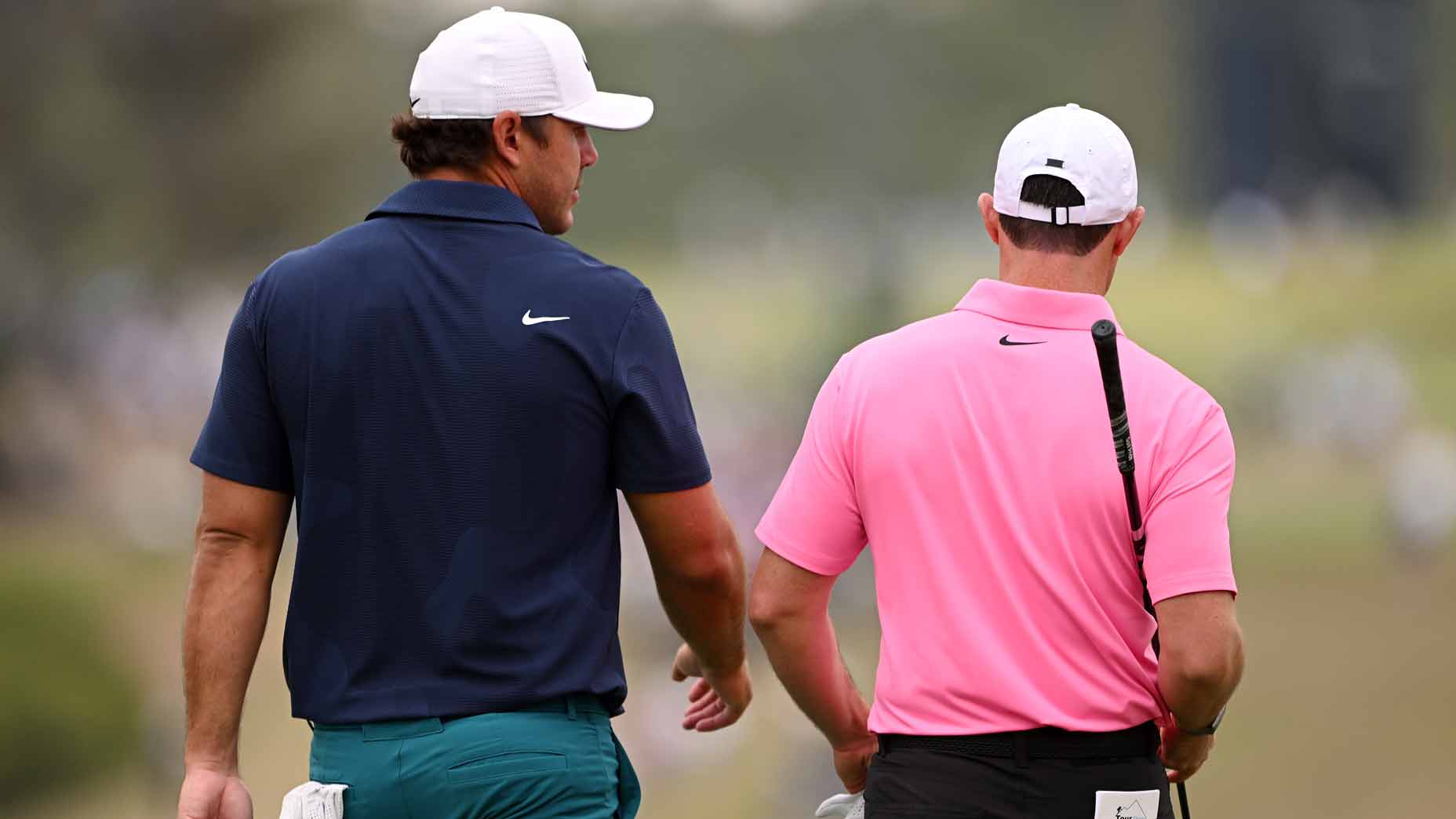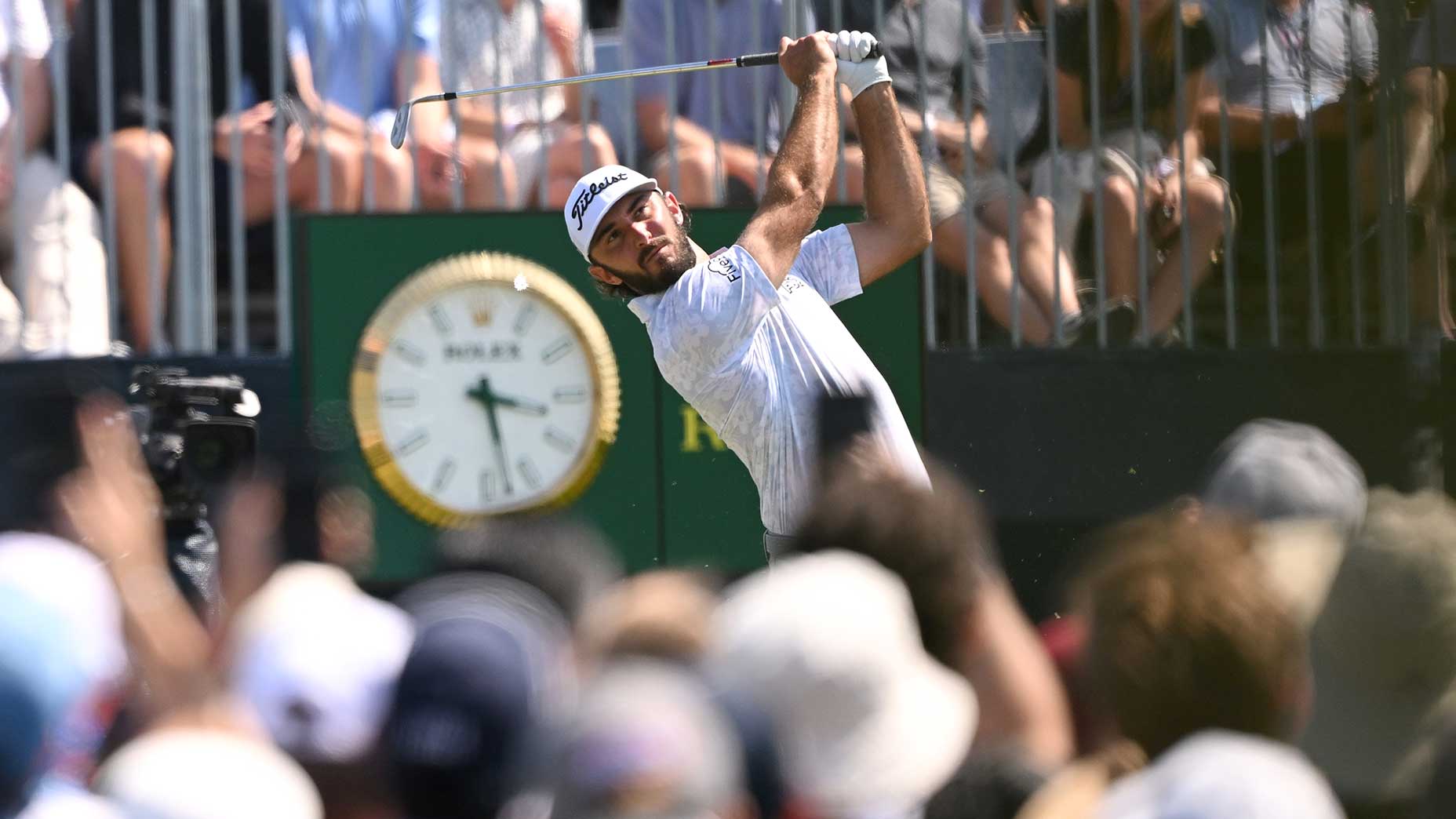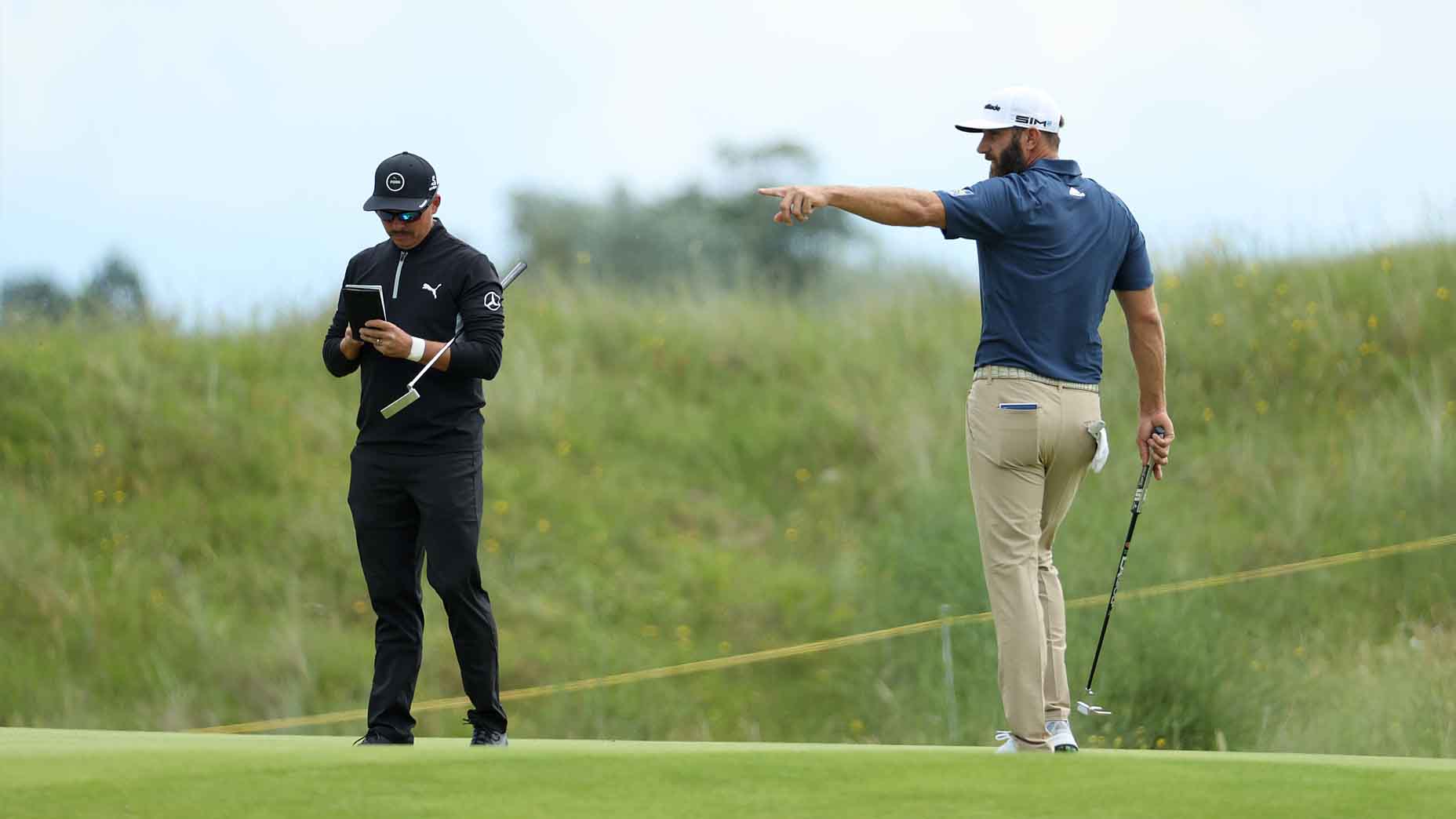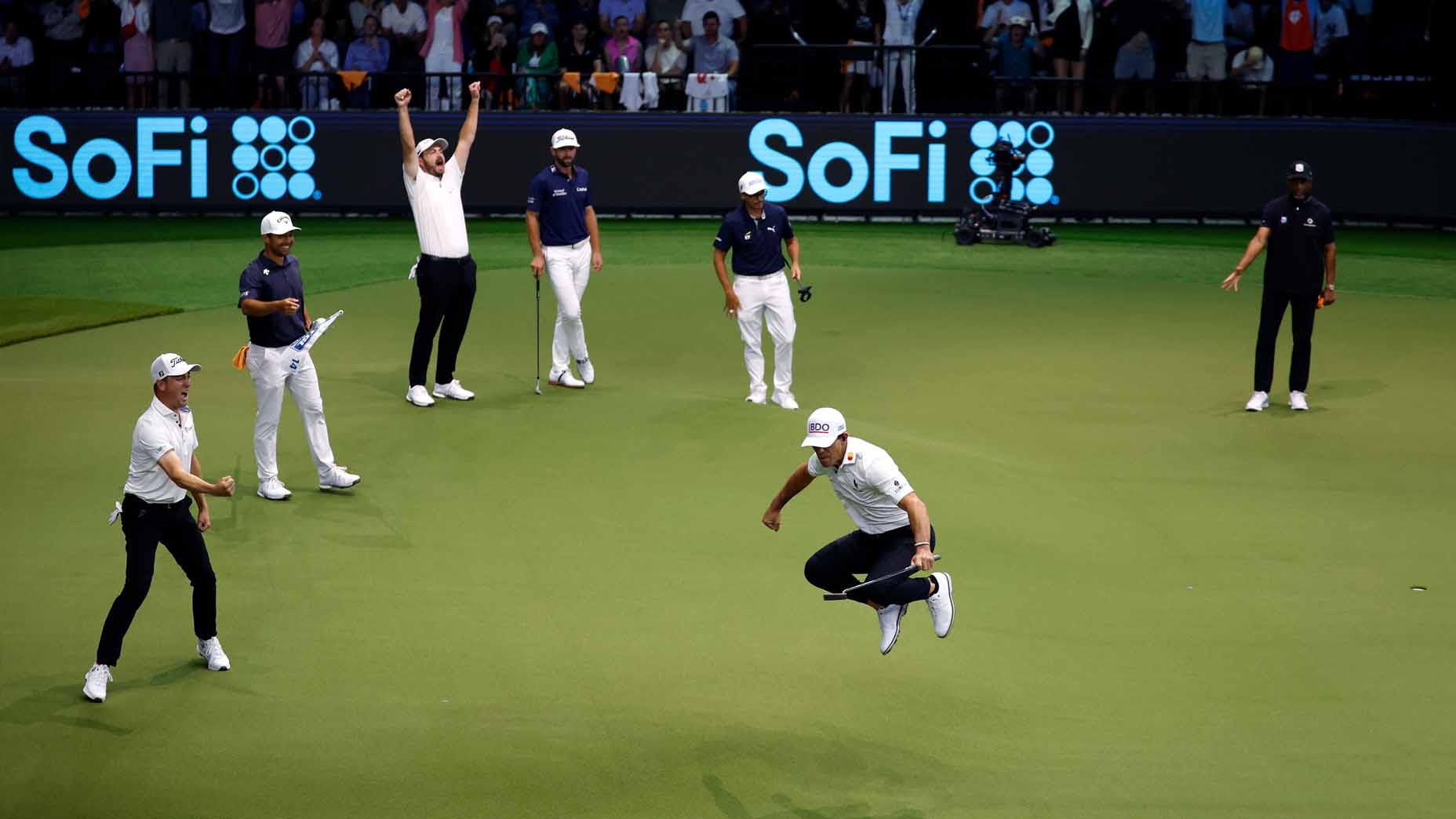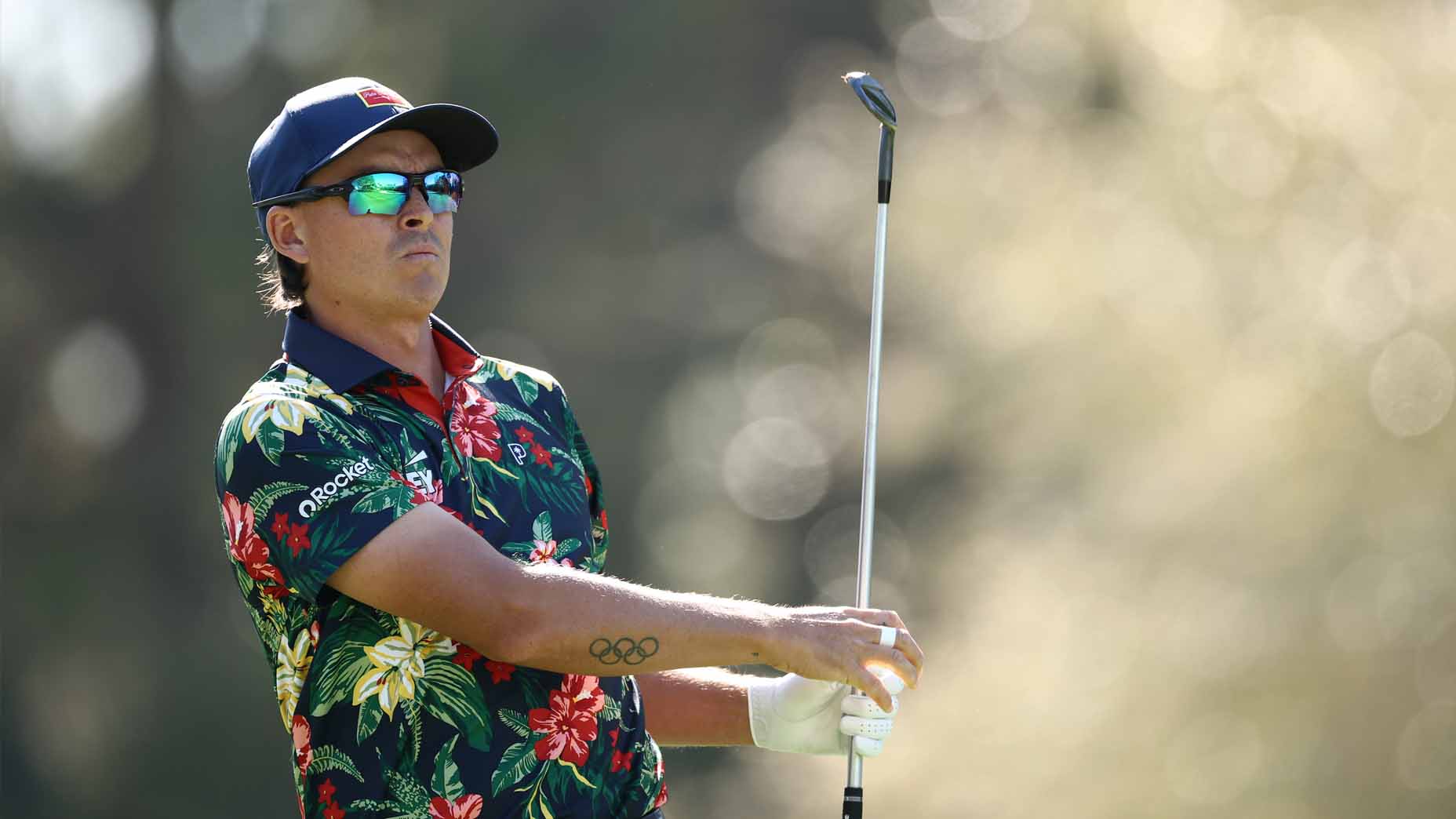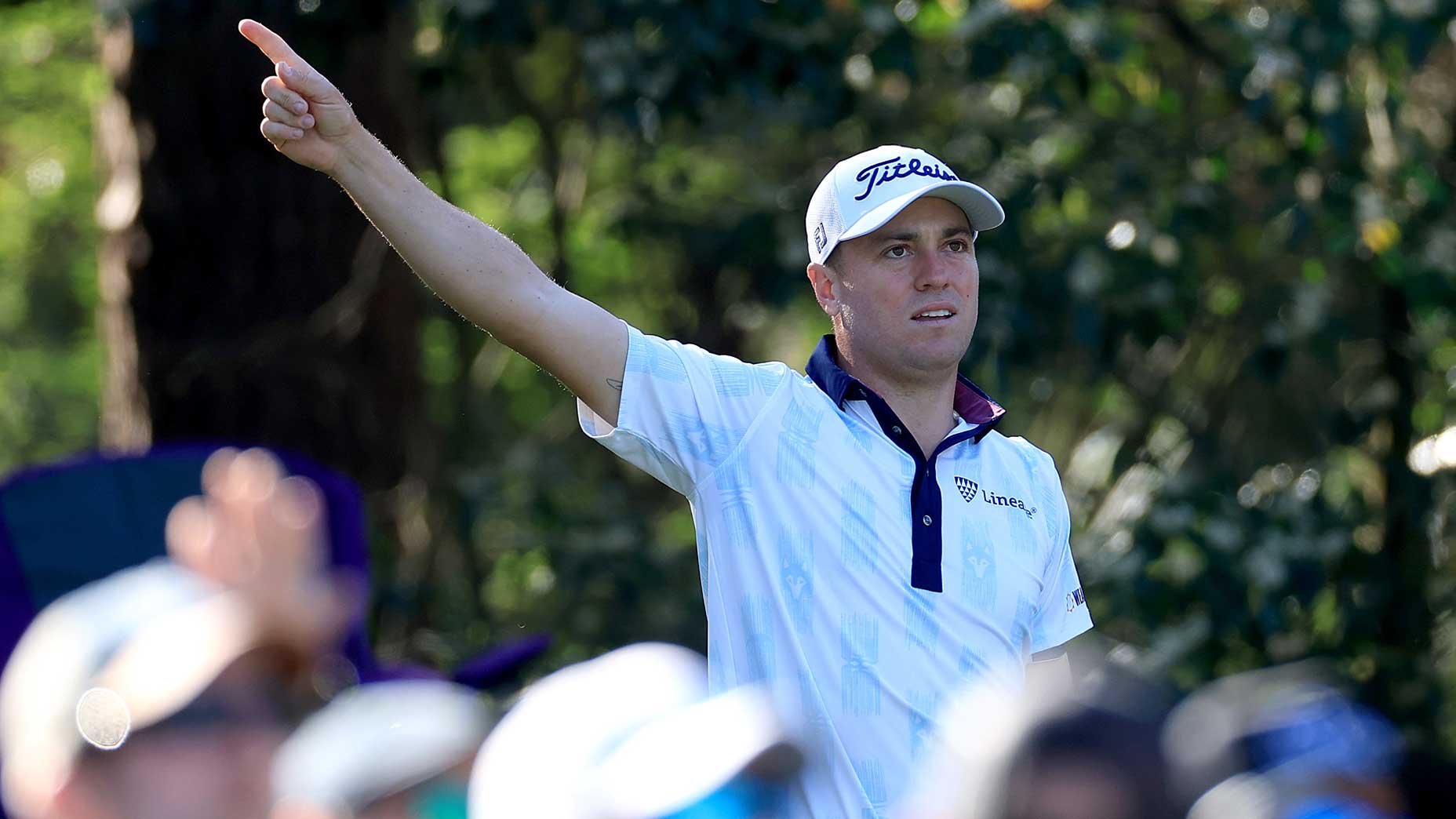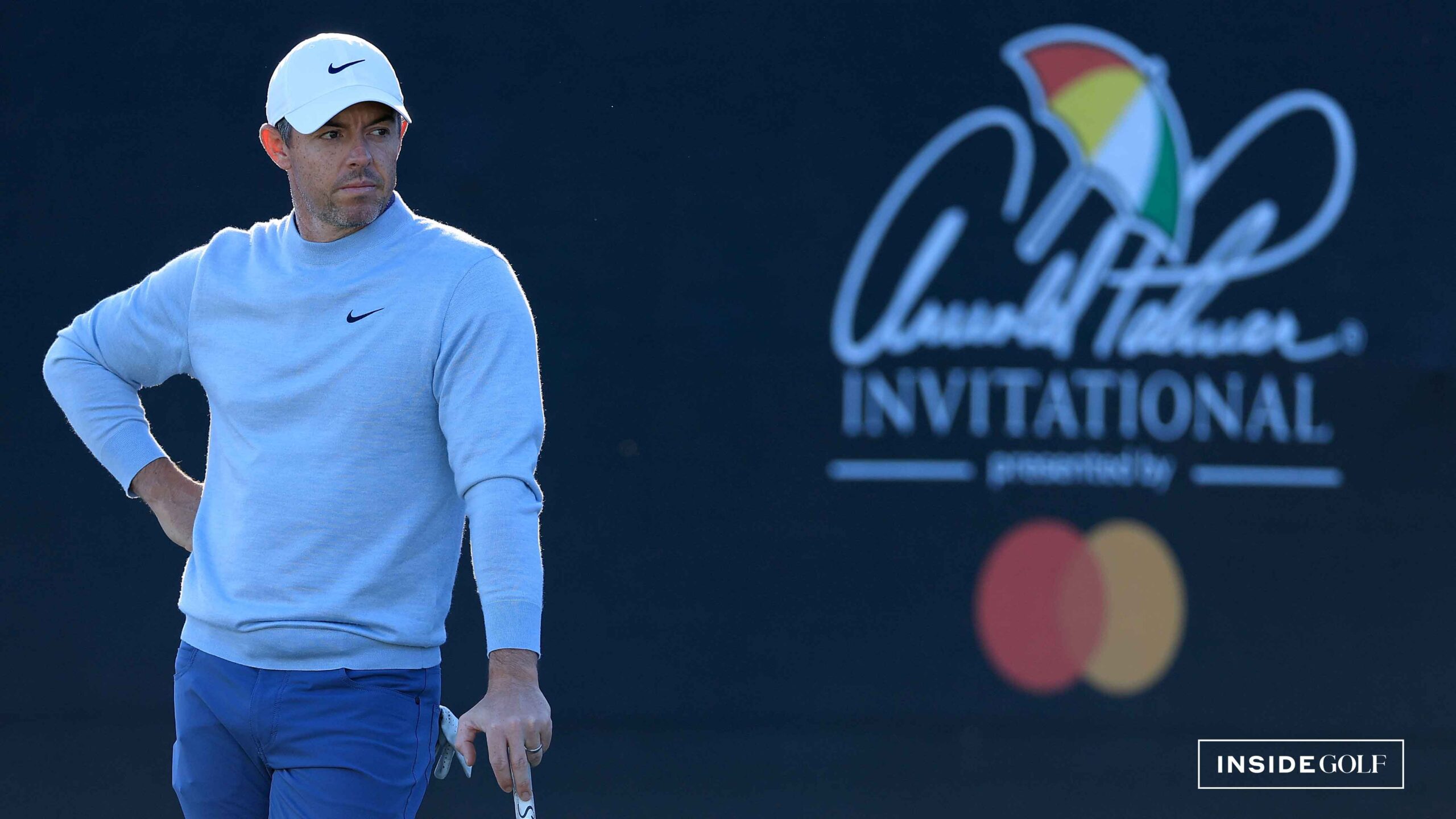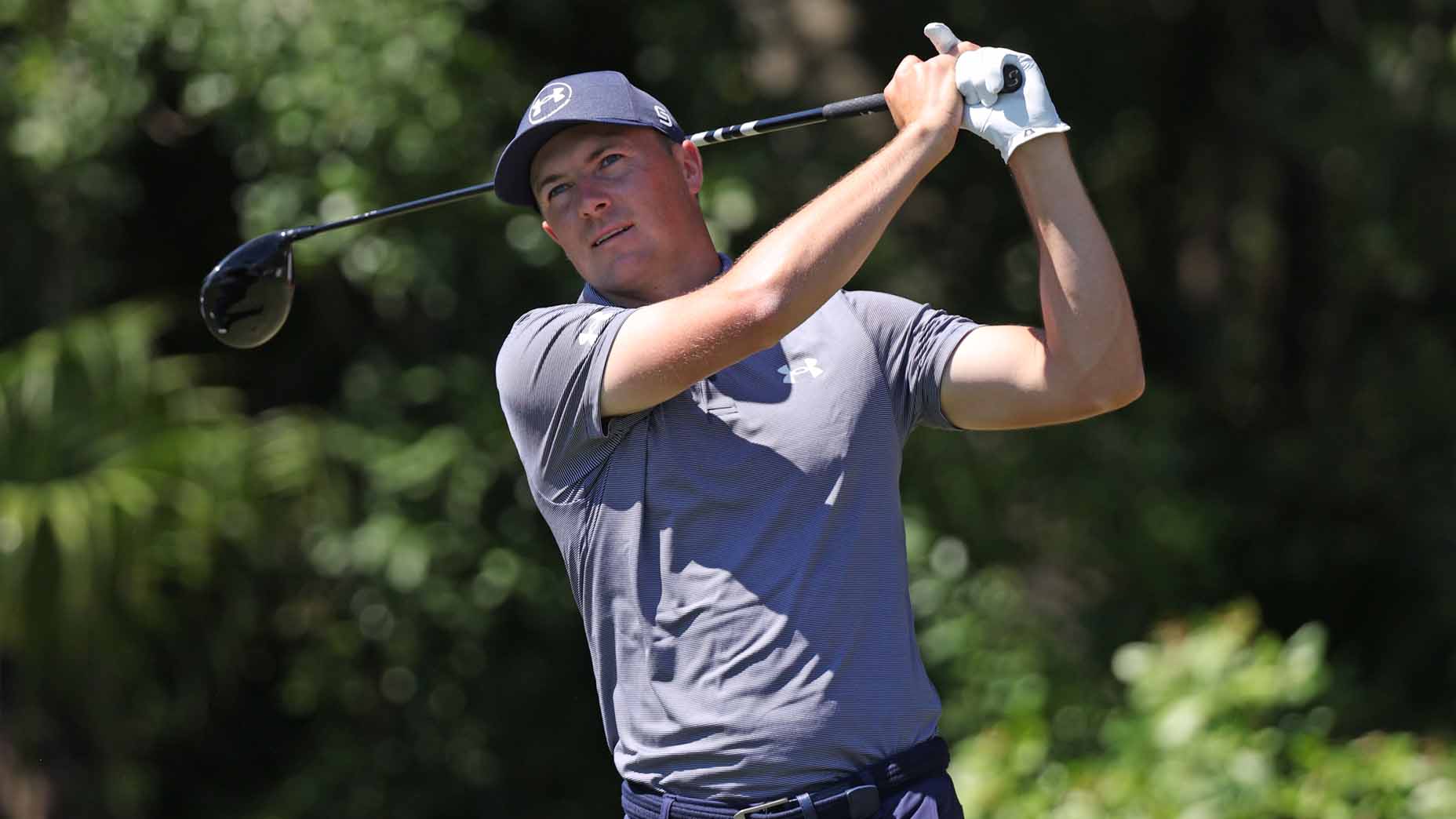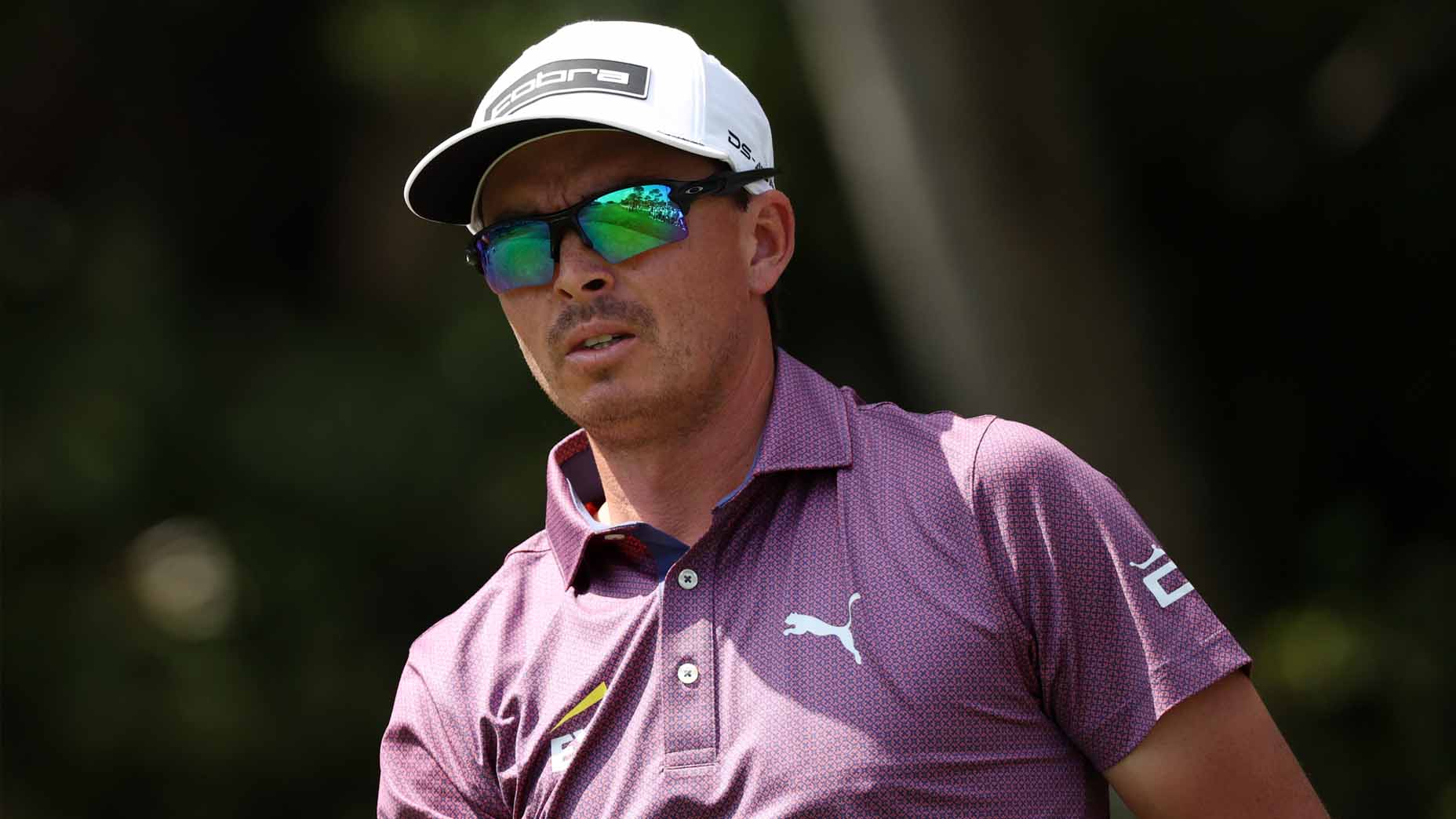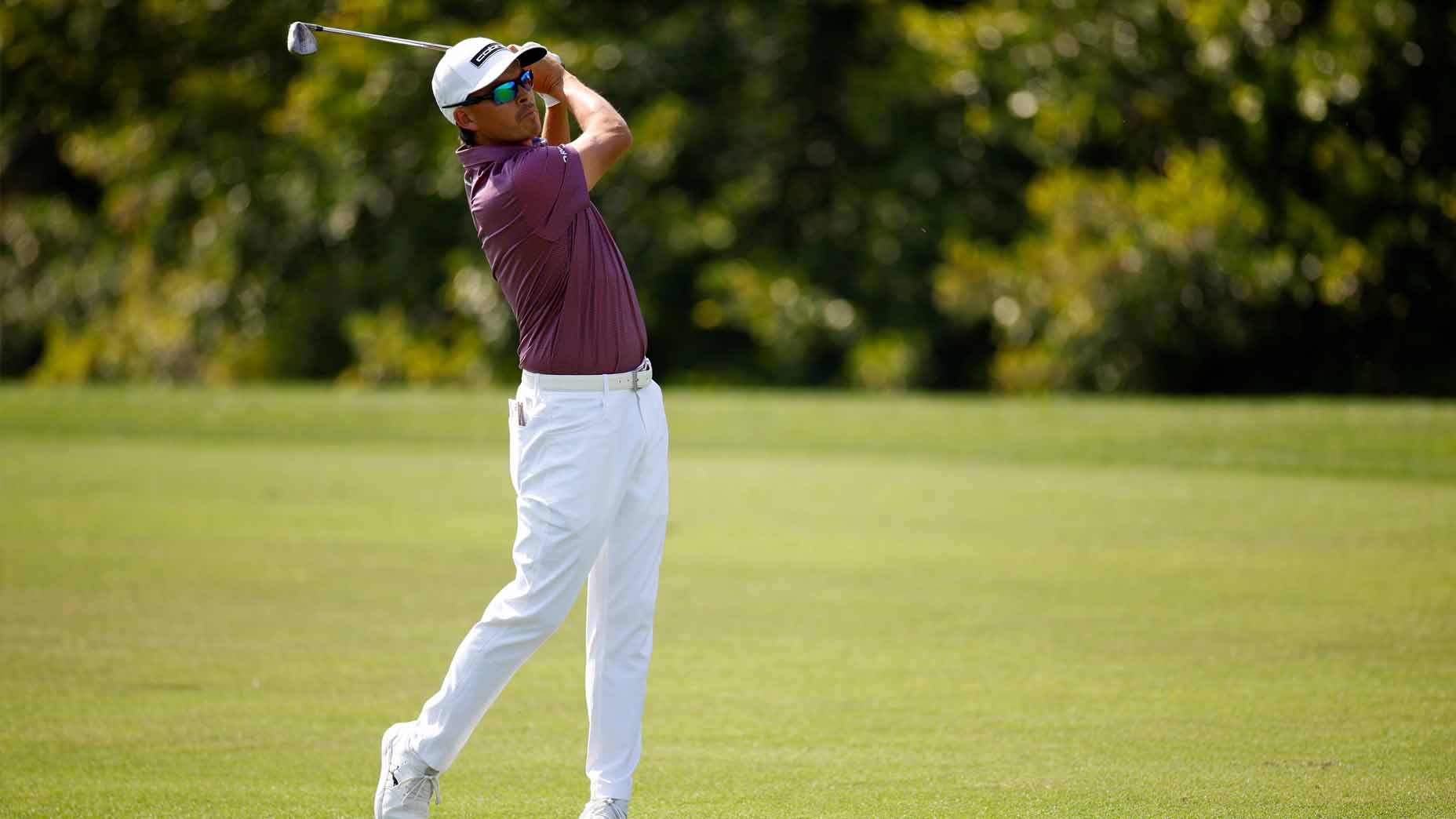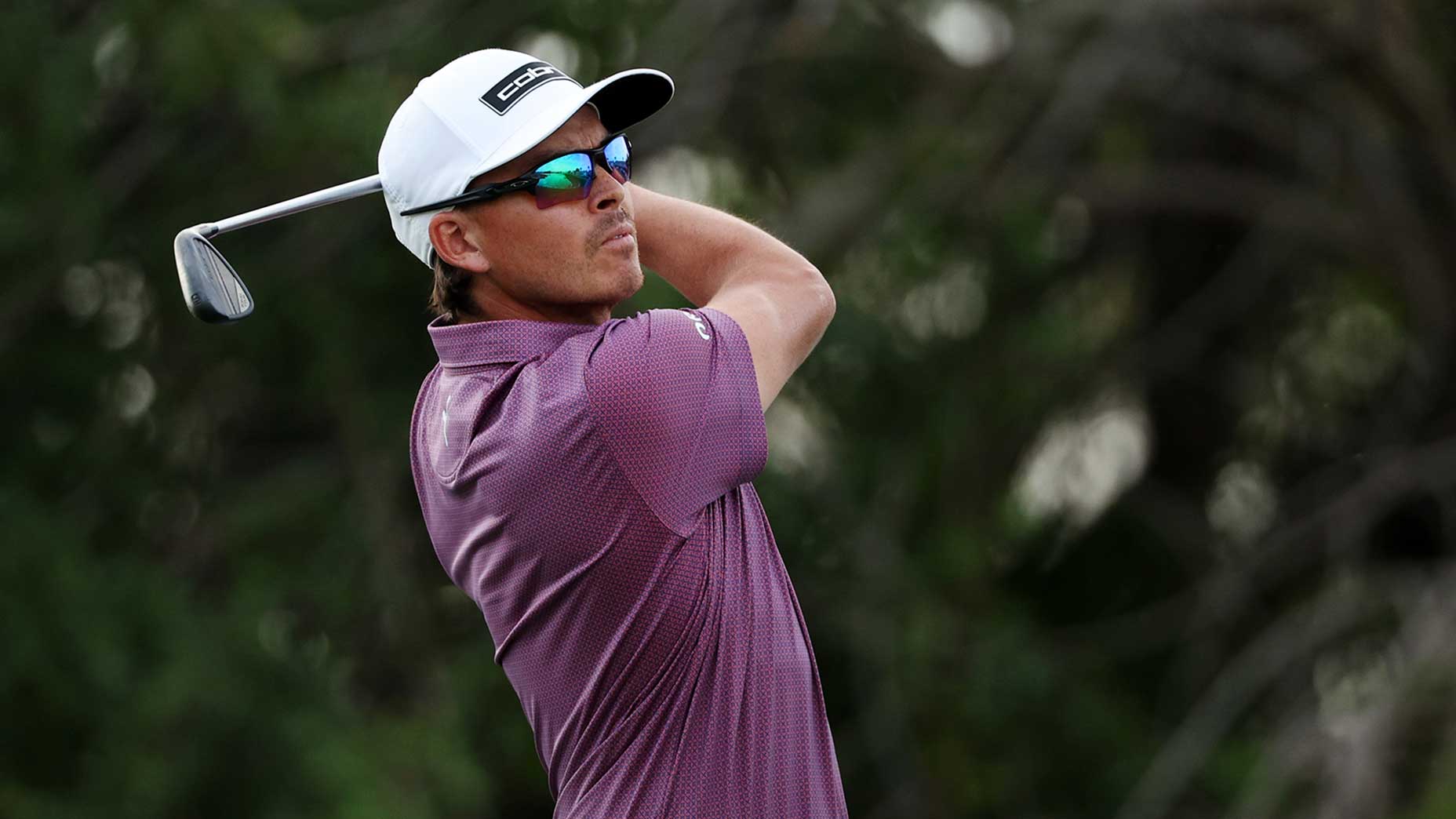How is Rickie Fowler leading the U.S. Open? Ask his father
- Share on Facebook
- Share on Twitter
- Share by Email
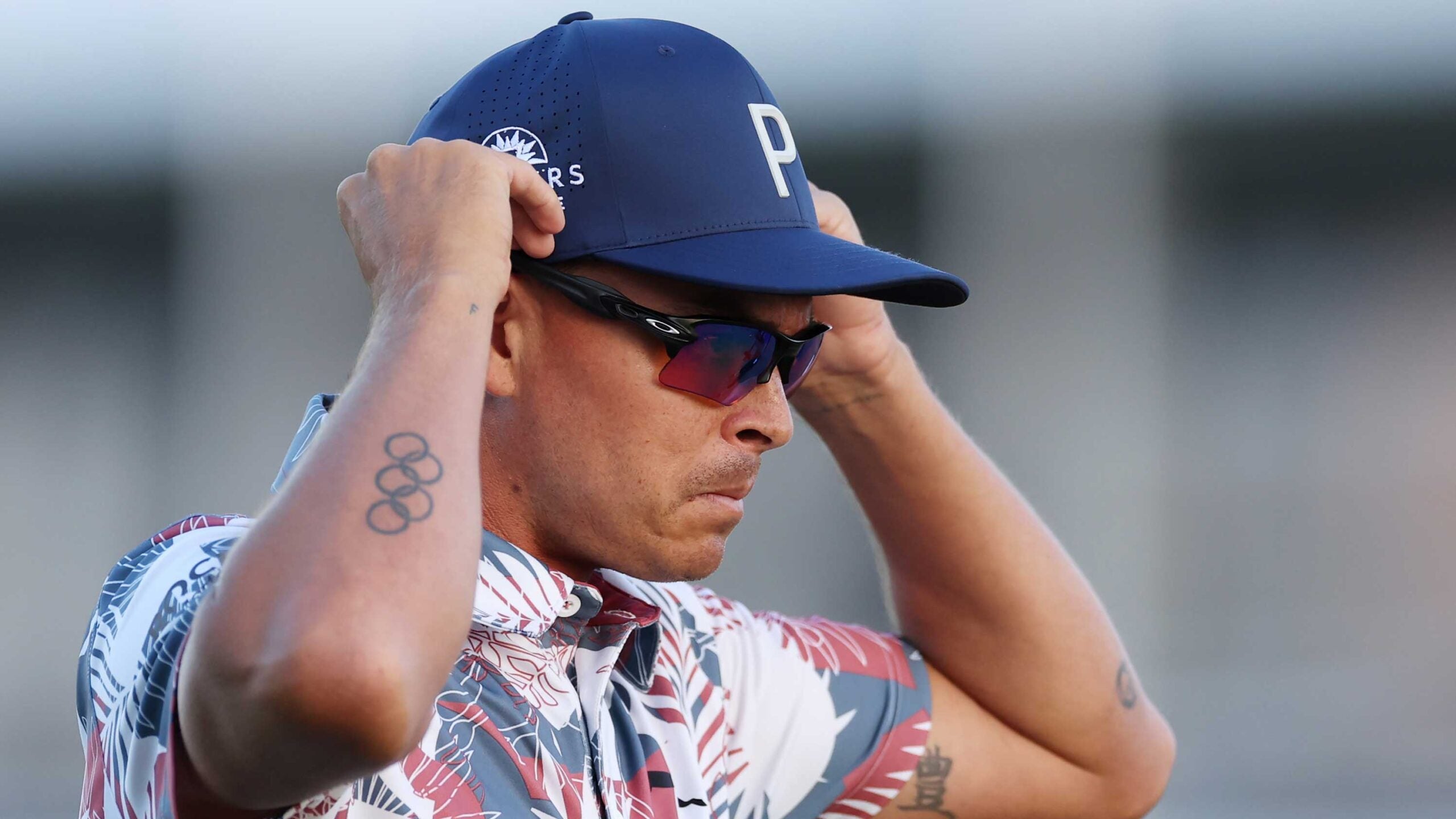
Rickie Fowler has a one-shot lead at the U.S. Open.
getty images
LOS ANGELES — If Rickie Fowler — your 36-hole leader in this 123rd U.S. Open — is going to thrill his legion of supporters and win his first major on Sunday evening, he will need to continue to showcase crisp ballstriking, steady putting and total command of his nerves.
He’ll need patience, too. Lots of it.
When Fowler and his second-round playing mates, Jason Day and Justin Rose, arrived on the tee of the par-3 4th hole of Los Angeles Country Club’s North Course Friday afternoon, they were greeted by a surprise, and not the fun kind. The group ahead of them — Tom Hoge, Sergio Garcia and Sepp Straka — was still on the box, sizing up their shots to a target 221 yards away. It was 2:22 p.m., and the waiting game was fully on.
The choke points at this U.S. Open were expected. That’s what happens when you cram 156 players into a Golden Age design with drivable par-4s, reachable par-5s and a pair of monstrously long par-3s. Delays are unavoidable and enduring them is part of the test.
As the minutes ticked by on the 4th tee, Fowler, Day and Rose passed the time with aimless milling and small talk. A few minutes later, they were examining each other’s irons. As the clubs passed hands, Day laughed and said, “I don’t know whose club is whose!” After a few more minutes, they had company: Patrick Reed, Matt Kuchar and Si Woo Kim, in the group behind them, had arrived on the 4th tee. A half-dozen players and as many caddies were now waiting to play their next shot, prompting Kuchar to crack, “They gonna wave you up yet or what?”
By the time Fowler stuck a peg in the ground and launched his ball toward the green, roughly 20 minutes had passed since he had holed out on 3. The result — a block into the bunker right of the green — was one of Fowler’s few loose swings Friday. Had the delay hurt him?
“You try not to think about it,” he said after his round of two-under 68 that moved him to 10 under for the tournament, one clear of Wyndham Clark. “But it is kind of a bummer when you get a little bit out of your rhythm, especially when you’re kind of rolling, especially coming off of three birdies to start the round. But there’s no excuses out here. Things are going to happen.”
Fowler was talking about slow play but he could have been talking about life.
You remember Rickie Fowler, right? He’s the guy who burst onto the PGA Tour scene in 2009 with dreamy, shoulder-length hair; Creamsicle-orange pants; and a passion for motocross. Professional golf had never seen anyone like him, and subsequently sponsors threw money at him. It took Fowler three years to win his first title, the Wells Fargo, in 2012. But he was still oozing promise and more popular than the Beatles.
Two years later, he finished top-five in all four majors, signaling that he was primed to break through on professional golf’s biggest stages. In 2015, he won the Players Championship and, later that year, a FedEx playoff event, the Deutsche Bank Championship. Two more wins came in 2017 (Honda) and ’19 (Waste Management), and then…
Then nothing. No wins. No momentum. No mojo. Nadda. In 2019-20, Fowler finished 94th in the FedEx standings. A year later, he plummeted to 134th and a year after that to 133rd. He was slumping, frustrated, lost. In early 2021, he revealed his struggles extended beyond the range and rope line. “It’s tough for all of us that are involved, from my caddie, to my wife, she’s having to deal with me at home,” Fowler said. “I’m trying to be the best husband that I can, not bringing golf back home.”
Change was needed, and change was coming. Toward the end of the 2021-22 season, Fowler and his longtime caddie and close friend Joe Skovron parted ways, with veteran looper Ricky Romano stepping into the job in October of that year. Around the same time, Fowler had made another significant move, severing ties with his swing coach John Tillery to reunite with his former coach, teaching legend Butch Harmon. One of Fowler and Harmon’s first sessions together came in Las Vegas during the week of the PGA Tour’s Shriners event.
Is Brooks Koepka rubbing off on Rory McIlroy? If so, that’s a good thingBy: Dylan Dethier
Rickie’s father, Rod, was in Vegas that week. “Butch said, ‘Rickie’s about 75 percent and we’ll have him back to 100 percent before long,'” Rod said in an interview with GOLF.com at LACC on Friday evening. “He also said, ‘He’ll win one this year.’ Whatever Butch says, you gotta believe the guy. He’s always been so good when they’ve worked together — Rickie’s game’s always gotten back to where it needs to be.”
After his opening-round, record-setting 62 on Thursday, Rickie said Harmon has been not only an effective swing coach but also a helpful life coach. “He can be technical and mechanical if needed, but he understands the playing and the mental side and what it takes to — if you may be a little off finding one thing or just telling you just something to give you a little confidence to go out there and just go play golf and keep it simple,” Rickie said. “That’s been one of the big things has been me getting back to playing golf.”
On Friday, Rod added: “Butch is the one who can tell Rickie how it is. If he thinks he’s playing like crap, he’ll tell him. I can’t tell him that. I don’t know golf like he does. Butch is the guy that gets to Rickie and makes him mentally stronger. He’s the guy. There’s nobody else. Whatever he says, Rickie’s going to listen to.”

Rickie needed every ounce of that mental fortitude in the second round Friday when warmer conditions and swirling breezes made the North Course play nearly a shot tougher for the field than it did in the first round. With a couple of Freds — Couples and Perpall, the USGA president — looking on from beside the first tee, Fowler blistered his drive on the par-5 1st and made birdie. Two more birdies on 2 and 3 moved him to 11 under for the week. He turned with a three-under 32 then shot a one-over 36 on the tougher back side to sign for 68. He’s still two rounds from glory but you wouldn’t have known that by the wealth of spectators who were hollering his name.
“The fans have been great here,” he said after his round. “I feel like especially yesterday as the round went on, just kind of more and more energy as I continued to go more and more under par. I’m looking forward to the weekend. It’s been a while since I’ve felt this good in a tournament, let alone a major.”
Forget about feeling good in majors — in recent years, Fowler hasn’t even played in many majors. His last U.S. Open appearance was in 2020. Ditto the Masters, which has particularly chapped him. When asked to identify the low point of Rickie’s downturn, Rod said, “It’s [missing] Augusta every year. That was enough this year that he said this isn’t going to happen again.”
Tour Confidential: Who, or what, has been the biggest surprise at the U.S. Open?By: GOLF Editors
His son’s struggles haven’t just been mechanical, Rod said. As Rickie has started a family — he and his wife Allison married in 2019 and had a daughter, Maya, in 2021 — keeping his attention squarely on golf has been challenging. “It’s been a little bit of a rough ride with that because his focus is in other places,” Rod said. “I feel like now he’s in a good place, he’s working hard and he wants to be back on top. It’s kind of like when they said he was one of the most overrated players — remember that?”
Rod was referring to an anonymous poll of Tour pros conducted by Sports Illustrated in 2015 in which Fowler was named the most overrated player on Tour.
“It was at the Players Championship,” Rod continued. “They kept trying to interview him that week and he wouldn’t say anything, and then he went out and won the tournament.”
Rod has plantar fasciitis in one of his feet — the same painful condition that has afflicted Tiger Woods — but it hasn’t stopped him from following his son around the North Course in the first two rounds. Credit the healing power of Rickie’s fine play. “If he was seven over right now, my foot would hurt really bad,” Rod said, smiling. “Right now I don’t even feel it. Must be the adrenalin.”
Rickie surely has been feeling his own surges of adrenalin as his name has ascended the leaderboard at LACC. But he also knows there is still much work to be done.
“Being in the lead is nice,” he said Friday evening, “but it really means nothing right now.”
On Sunday evening, it could mean everything.
Latest In News

Alan Bastable
Golf.com Editor
As GOLF.com’s executive editor, Bastable is responsible for the editorial direction and voice of one of the game’s most respected and highly trafficked news and service sites. He wears many hats — editing, writing, ideating, developing, daydreaming of one day breaking 80 — and feels privileged to work with such an insanely talented and hardworking group of writers, editors and producers. Before grabbing the reins at GOLF.com, he was the features editor at GOLF Magazine. A graduate of the University of Richmond and the Columbia School of Journalism, he lives in New Jersey with his wife and foursome of kids.

